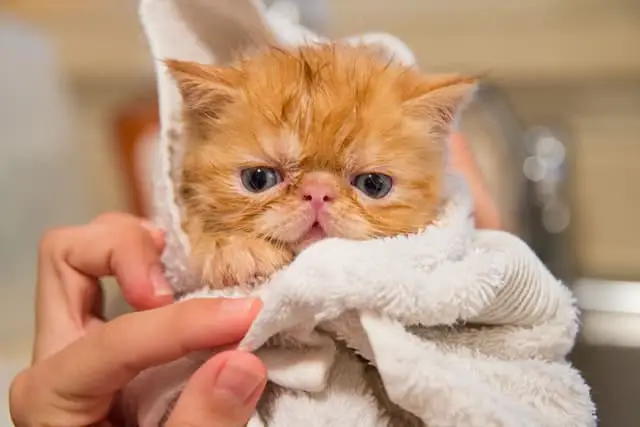
It is important to recognize the various symptoms of shock that can occur in cats in the event of trauma or illness. Here’s what to look out for.
The state of shock in cats can occur for various reasons, due to physical trauma or serious illness, from any situation that causes a loss of oxygen in the blood and little blood flow to the vital organs of the cat.
In order to know if the cat is in a situation of shock it is necessary to notice various symptoms. Below we will list the various signs to watch out for.
Shock symptoms in cats: what to watch out for

Different mucous membranes
The mucous membranes of the cat are found in his gums, lips and inner eyelids, they are normally pink but if your cat suffers from any health problems they will appear discolored. If your four-legged friend is in shock, his gums may be one of the following colors:
- Red
- Brown
- Yellow
- White
- Blue
You can check the color of your cat’s gums by lifting the lips and looking at the gums.
Hyperventilation
Unlike dogs, cats usually don’t pant and don’t breathe quickly. If your cat appears to be having difficulty breathing, panting, or hyperventilating, he may be in shock.
The normal breathing rate of a healthy adult cat is between 20 and 30 breaths per minute. Calculate your cat’s breaths per minute by counting the number of breaths he takes in a 15 second period and multiply that by four.
If the number is over 30 and your cat hasn’t been exercising at all, she is probably in shock and hyperventilating. Hyperventilation is a sign of a serious health problem, so it is very important to take your cat to the vet.
Hypothermia
Hypothermia is a fairly common symptom of shock and occurs when the cat’s body temperature drops below 37.5 ° C. The normal body temperature for a cat is between 38 ° C and 39 ° C. Symptoms of hypothermia include chills and a cold sensation in the cat’s body.
High heart rate
The cat’s normal heart rate should be between 110 and 130 beats per minute. If your cat is in shock he will initially have an elevated heart rate but as the shock increases you may see your furry friend’s heart rate and blood pressure decrease. The heart rate will most likely be inconsistent and erratic.






